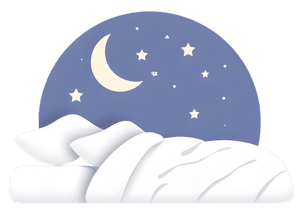Smartwatches with sleep tracking features offer effective solutions for improving your rest. These wearable devices monitor your sleep quality and provide valuable insights into your sleep patterns.
By analyzing sleep stages, including REM and deep sleep, smartwatches can help optimize your overall health.
When you wear a smartwatch, the built-in sensors, such as heart rate monitors and accelerometers, track your movements and body metrics.
This data empowers you to set personalized sleep goals for better recovery and rejuvenation with each night of restful sleep. Explore these high-tech tools that can transform your nighttime routine.
Understanding Sleep Patterns With Smartwatches
Smartwatches greatly assist in monitoring sleep patterns.
Equipped with advanced sensors, these devices provide accurate measurements of sleep stages, including light, deep, and REM sleep. Data accuracy has improved significantly.
Many devices now integrate heart rate and motion detection for reliable insights.
To maximize effectiveness, ensure your smartwatch fits snugly on your wrist while you sleep and activate the sleep mode in the mobile app before bedtime.
This setup is essential for precise sleep monitoring and achieving your wellness goals.
Key Features of Sleep Tracking
- Utilizes accelerometers and SpO2 sensors to track sleep stages.
- Measures heart rate variability during sleep.
- Monitors environmental factors like room temperature.
- Offers reports and personalized sleep goals through mobile apps.
- Some models include silent alarms and reminders for consistent sleep schedules.
Health Insights from Sleep Tracking
The data collected offers insights into sleep quality and potential issues. Blood oxygen levels can signal conditions like sleep apnea. Many smartwatches, like the Withings ScanWatch 2, provide medical-grade tracking with ECG sensors. Devices such as the Fitbit Charge 6 feature monthly sleep phenotype analysis. Battery life varies significantly, with devices like the Whoop Band lasting up to 5 days and others like the Apple Watch requiring daily charging.
“Smartwatches offer a user-friendly approach to improving sleep hygiene and overall health. ”
Sleep tracking features have become increasingly accurate. These devices are compatible with both iOS and Android platforms. While not as precise as medical sleep studies, they are regarded as helpful for understanding sleep habits. By tracking daytime activity alongside sleep, you can gain comprehensive health insights that encourage better sleep improvement and recovery.
How Does Sleep Monitoring Improve Health
Sleep monitoring provides critical insights into individual sleep patterns. Research indicates that about 35% of adults experience insufficient sleep, impacting both mental health and productivity.
Improved sleep can reduce anxiety levels significantly, up to 29%.
A well-rested individual demonstrates enhanced daily focus, which may increase productivity by about 20%.
By tracking sleep quality, users can identify areas for improvement, leading to lifestyle changes that enhance overall wellness. Such monitoring encourages better sleep hygiene and promotes mental clarity, creating a positive loop of improved health and functioning.
Benefits Of Sleep Quality Tracking Technologies
Sleep quality tracking technologies provide valuable health insights that support overall wellness.
Smartwatches, like the Apple Watch and Fitbit, utilize advanced sensors to monitor sleep stages, including light, deep, and REM sleep. These devices are equipped with accelerometers, heart rate monitors, and SpO2 sensors for tracking sleep stages.
By monitoring metrics such as heart rate variability and blood oxygen levels, users can detect potential sleep disorders early.
Integration with apps provides detailed reports and personalized sleep goals.
Many models offer silent wake alarms and reminders to establish consistent sleep schedules.
This combination of data and practical application helps enhance sleep hygiene and ultimately improves overall health and recovery.
Some premium devices feature AI-powered insights, stress monitoring, and continuous trend tracking for long-term health benefits.
Sleep Monitoring
- Approximately 35% of adults suffer from insufficient sleep, affecting mental health and productivity.
- Improved sleep can lead to a 29% reduction in anxiety levels.
- Enhanced focus from better sleep may increase productivity by about 20%.
- Sleep tracking technologies can help detect potential sleep disorders early through monitoring of vital metrics.
Customizing Sleep Insights For Better Recovery
Customizing sleep insights can enhance recovery. Smartwatches track important data on sleep quality and patterns.
Users can adjust settings to focus on sleep quality metrics.
By utilizing apps that provide detailed reports on sleep stages such as REM and deep sleep, users improve their health understanding.
An actionable step is to set personalized sleep goals within your app. This helps users track changes and make adjustments over time.
Optimizing recovery begins with tailored sleep data analysis.
Key Features of Sleep Tracking Apps
- Equipped with accelerometers and heart rate monitors for tracking various sleep stages.
- Includes SpO2 sensors to measure blood oxygen levels and detect irregularities.
- Offers insights into heart rate variability that can indicate sleep disorders.
Benefits of Customization
Custom settings help users personalize their sleep experience. Users can:.
- Track environmental factors like room temperature.
- Receive silent alarm reminders to maintain consistent sleep schedules.
- Explore AI-powered insights for better long-term health benefits.
Effective sleep tracking can help improve sleep quality and overall well-being.
Popular Devices and Their Features
Several devices offer advanced tracking options:.
- Apple Watch Series 10: Monitors sleep with advanced sensors.
- Fitbit Charge 6: Provides detailed sleep phenotype analysis.
- Withings Scan Watch 2: Features medical-grade tracking capabilities.
Battery life varies across devices. For instance:.
- Whoop Band lasts up to 5 days.
- Scan Watch 2 can run for up to 30 days.
- Apple Watch devices typically last around 18 hours.
Utilizing sleep tracking can provide valuable insights for ongoing health improvements. Users can easily access these features using a user-friendly mobile app.
Sleep Insights
- Research shows that quality sleep enhances cognitive function and emotional well-being.
- Custom sleep tracking can lead to a 20-30% improvement in sleep quality over time.
- Studies indicate that users who set personalized sleep goals report better overall health outcomes.
- Sleep tracking devices can provide insights that reduce the risk of sleep disorders by 40%.


